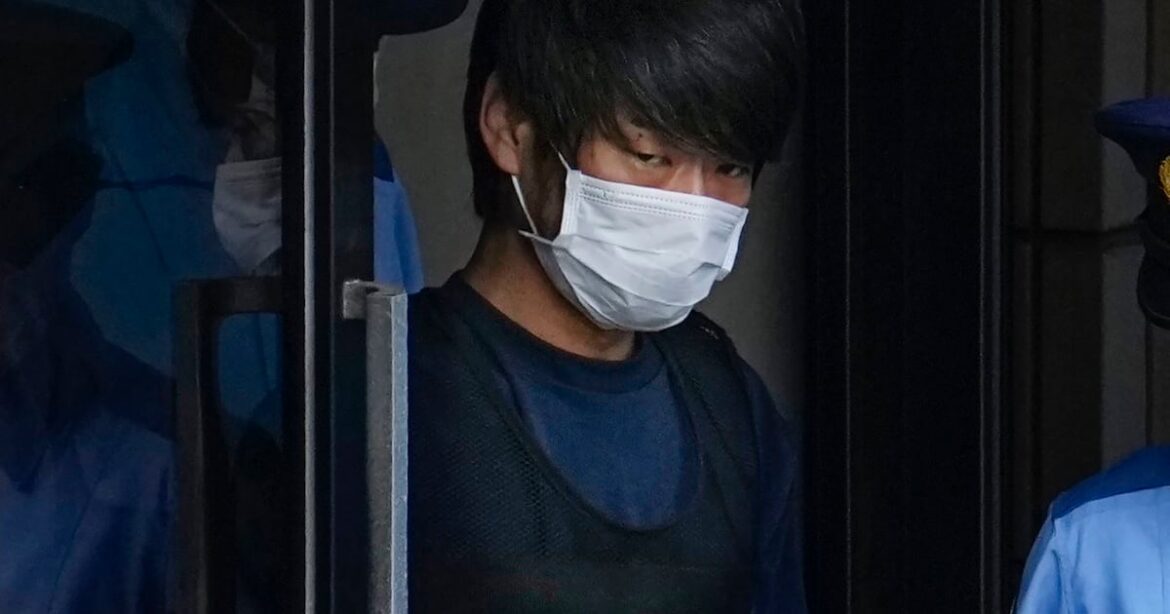The much-awaited trial of the man accused of murdering former prime minister Shinzo Abe starts on Tuesday.
Lawyers for Tetsuya Yamagami (44) will not contest his guilt, but are expected to argue for clemency based on his tragic past.
Abe was killed with a home-made gun in Nara city in July 2022. He was the first Japanese prime minister assassinated since 1936.
Many initially suspected the assassin had been driven by ideology, but it now seems clear that he bore a grudge.
Yamagami was born the son of a construction boss in 1980 into a prosperous family that subsequently fell apart. His father took his own life when Tetsuya was four. His five-year-old brother developed cancer and lost an eye.
Overwhelmed by these tragedies, Yamagami’s mother joined the Unification Church. Now known as the Family Federation for World Peace and Unification, or the Moonies, the church became noted in Japan for preying on misfortune.
Family members say Yamagami’s mother sold the family home and donated the proceeds, along with her husband’s life insurance, to the church. She disappeared for long stretches to South Korea, the home of the Moonies, leaving her newly impoverished children to fend for themselves.
Embittered, Yamagami drifted in life. In 2005, he tried to take his life. Ten years later, his brother took his own life. On his Twitter account to a handful of followers in 2019 he wrote: “I will never forgive the church, nor the Japanese people who side with it.”
In the same year, Yamagami took a knife to kill Hak Ja Han, the ageing matriarch of the church, during one of her visits to Japan, but could not get close enough.
Instead, he later told police, he set out to unveil the church’s links with the ruling Liberal Democratic Party (LDP) by killing Abe, its president.
In this much, Yamaguchi has succeeded. Abe’s murder, in a country where guns are so rare the killer had to make his own, exposed an odd 60-year marriage of convenience between his party and the Moonies, dating back to Abe’s grandfather, Nobusuke Kishi.
Kishi, Japan’s prime minister from 1957 to 1960, and Rev Sun Myung Moon, the self-professed messiah who founded the quasi-Christian church in 1954, shared a hatred of communism.
As one of the founders of the LDP, which was sponsored by the CIA, Kishi helped clear the church’s path in Japan, easing its way into elite politics.
Cold-war politicians in Japan and the United States saw the church as a way to promote anti-communist views and win votes.
The church financed a global network of right-wing causes and conservative ties from “spiritual sales” in Japan, often by exploiting guilt for Japan’s occupation of the Korean Peninsula between 1910 and 1945.
In 2013, Abe was photographed meeting the head of the Unification Church, Eiji Tokuno, and other religious leaders and conservative figures at the LDP headquarters in Tokyo.
Shortly before his assassination, Abe was introduced as the heir to Kishi at an event hosted by the Universal Peace Federation (UPF), an affiliate of the church.
Along with Donald Trump, Abe gave a recorded speech, praising the group’s fight for “family values” and warning about left-wing movements.
Since Abe’s death, the LDP has been forced to clean house. An internal inquiry found that almost half of all the party’s lawmakers had connections to the church, ranging from attending its functions to accepting donations. Four cabinet members were forced to resign.
The Japanese government has since passed new laws banning “unscrupulous solicitations” for large donations by religious groups. Last March the Tokyo District Court stripped the church of its tax-exempt status and ordered it to liquidate its assets. About 180 lawsuits against the church are in train.
Yamagami’s lawyers will use this backstory in his defence.
Like Luigi Mangione, who is due to go on trial for the murder of United Healthcare chief executive Brian Thompson last December, there is some public sympathy for the killer.
Some see Yamagami as a desperate, even romantic victim of an unscrupulous elite. The media has run stories about fans who have raised money and signed petitions pleading for leniency. One columnist called him a “dark hero”.
Prosecutors will argue Yamagami is a cold-blooded killer who carefully planned his attack on Abe, following his routes and test-firing his weapon in advance.
Months of psychological tests have declared him fit for trial, which begins on Tuesday. Among the most closely watched witnesses will be the defendant’s mother, who will testify in his defence.


AloJapan.com